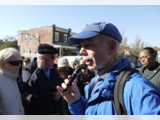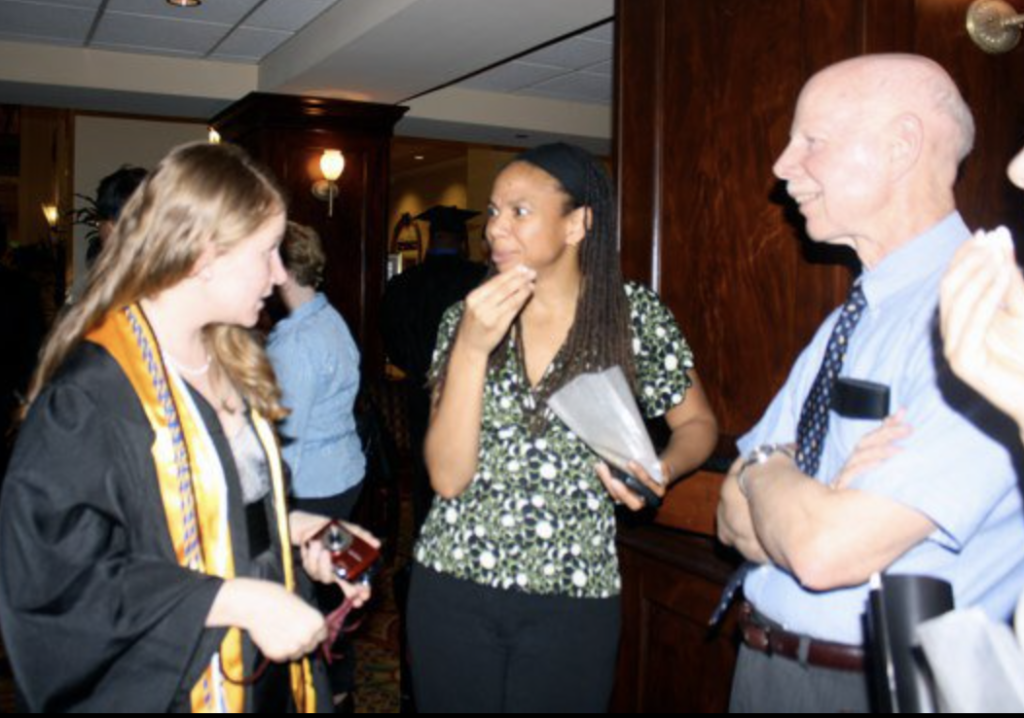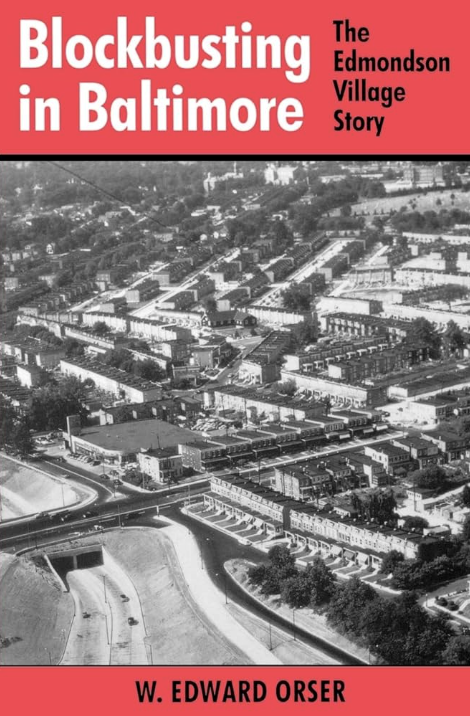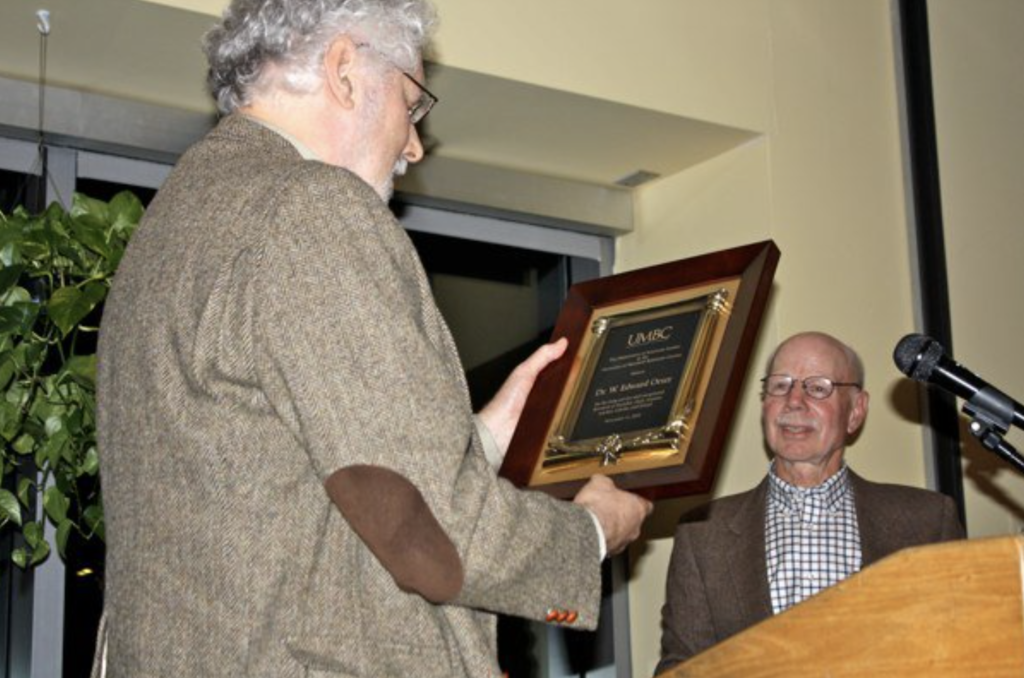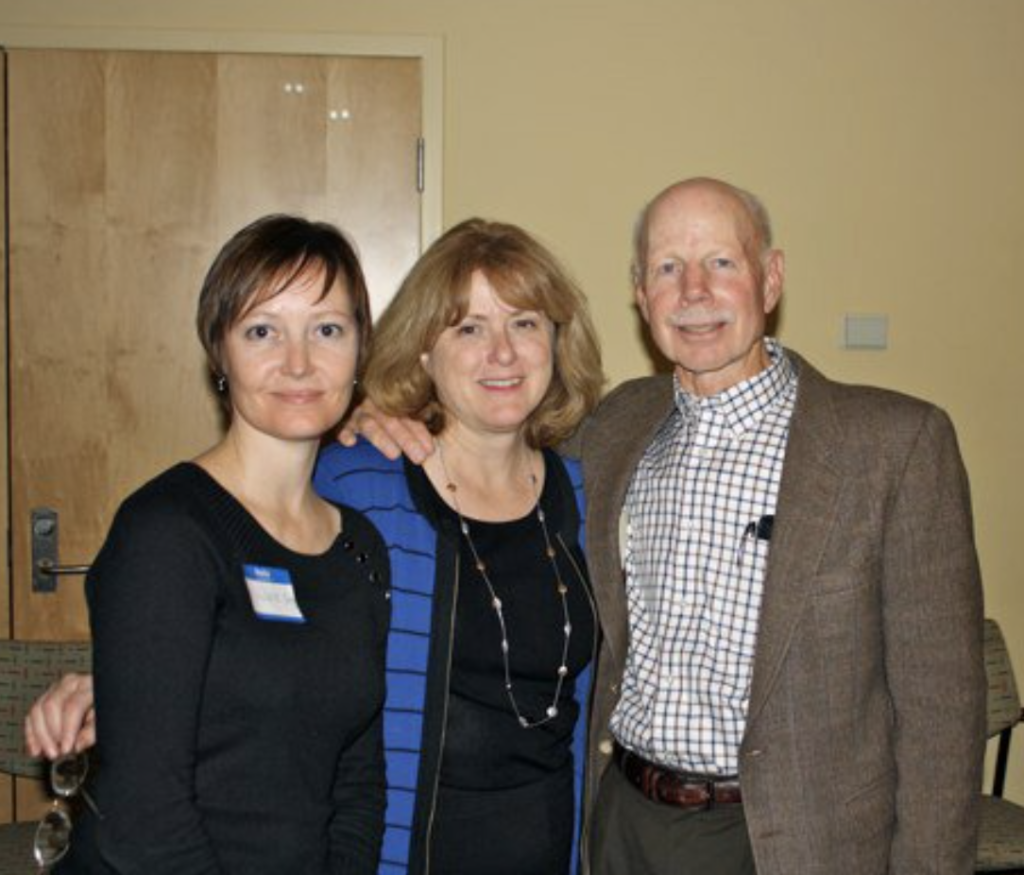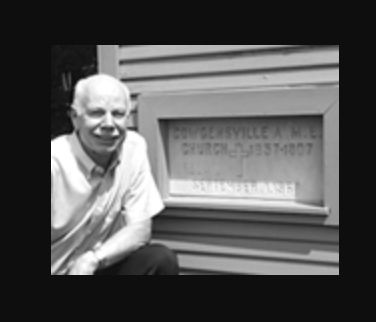Remembering Ed Orser (1941 – 2024)
"How do you ground the American experience in something you can get your hands around?" asks Orser. "I always thought it was helpful to bring things down to a certain scale. Maybe because that's as much as I could try to get my mind around, but also it is because in some ways, that's where we live our lives."
- W. Ed Orser, quoted in Locale Hero, UMBC Review, by Richard Byrne
It is with great sadness that we share the news that W. Edward (Ed) Orser passed away on Monday, January 8, 2024. Ed was a beloved professor and researcher in the Department of American Studies at UMBC for over forty years. Upon his retirement in 2010, and in his honor, the Orser Center for the Study of Community, Place, and Culture was established at UMBC to foster innovative collaborations among scholars, students, and local community organizations across the disciplines whose research and teaching explore place-based study, especially focused on the Baltimore region.
Ed Orser earned a Ph.D. in American Studies from the University of New Mexico and came to UMBC in 1969, just four years after the university was formed, as one of the founding faculty members of the Department of American Studies. He served numerous terms as chair of the department and developed foundational courses still taught today.
Ed's teaching and research interests were always closely connected. His courses on "Community in American Culture" and "American Environments: Landscape and Culture" not only became central parts of the American Studies curriculum, but led to a variety of research projects with students and to themes that became the focus of his own scholarship. Ed's work as a publicly-engaged scholar in the local community was an inspiration for the Minor in Public Humanities for the College of Arts, Humanities, and Social Sciences (CAHSS), which is fittingly located in the Orser Center in American Studies.
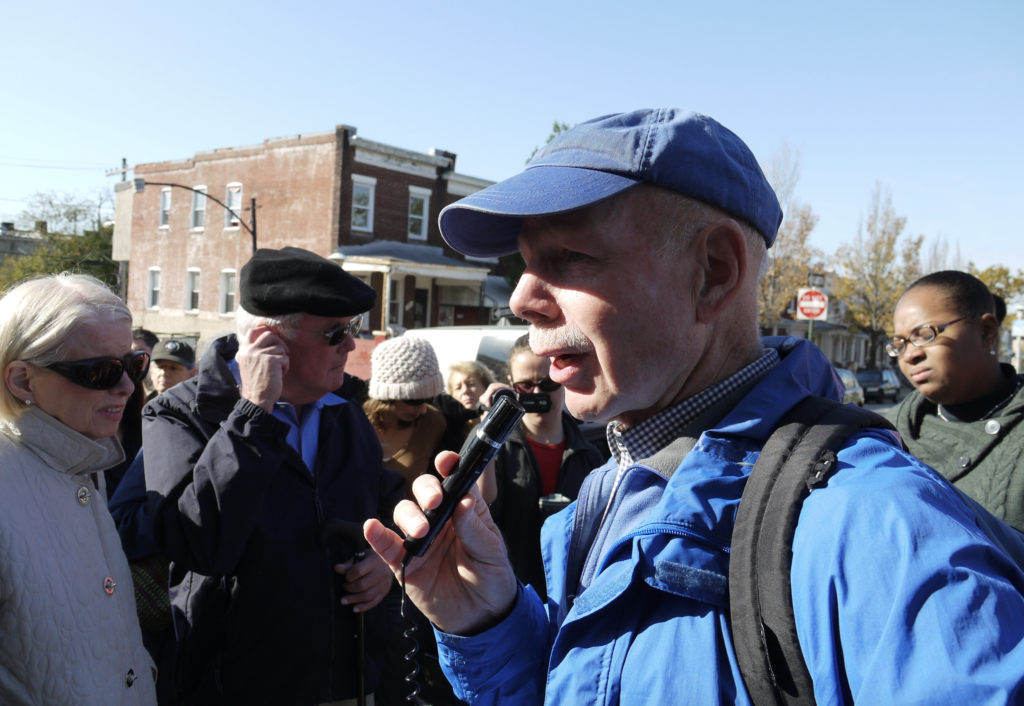
Ed's publications explore the social and cultural dynamics of the Baltimore region. His examination of the phenomenon of massive racial change in West Baltimore during the 1950s and 1960s led to the first book-length study of blockbusting and its consequences in post-World War II cities: Blockbusting in Baltimore: The Edmondson Village Story (University Press of Kentucky, 1994, 1997). Blockbusting in Baltimore was an influential, and widely imitated, text that is still cited in emerging scholarship on Baltimore and cities like it.
A collaborative research and teaching project with Professor Joseph Arnold of the History Department, resulted in an on-campus exhibition and the co-authored publication of From Village to Suburb: Catonsville, 1880-1940 (Donning Publishing Company, 1989). His first book, Searching for a Viable Alternative: The Macedonia Cooperative Community, 1937-1958 (Burt Franklin, 1981) explored the effort by a group of pacifists to establish an alternative community in North Georgia during and following World War II.
Articles on related topics have appeared in such journals as American Studies, Church History, the Maryland Historical Magazine, the International Journal of Oral History, the Public Historian, and the Journal of Urban History. Ed's interest in environmental history in the Baltimore area resulted in publication of The Gwynns Falls: Baltimore Greenway to the Chesapeake Bay (The History Press, 2008) and the article, "A Tale of Two Park Plans: The Olmsted's Vision for Baltimore and Seattle, 1903" (Maryland Historical Magazine, Winter 2003). His public history activity included co-authorship of The Gwynns Falls Trail Master Plan (with Diana Balmori, et al., 1995).
Ed received the UMBC Presidential Teaching Award in 1999 and the University System of Maryland Regents Award for Excellence in Teaching in 2003. The Baltimore Historical Society conferred Historian Honors recognition upon him in 2007.
Though deeply committed to Baltimore and UMBC, Ed also taught American Studies in a variety of international settings. In 1990-1991 he served as Senior Fulbright Lecturer at the University of Zagreb in Yugoslavia. In 2007, he taught in the American Studies Department at the University of Swansea in Wales. Prior to coming to UMBC, Ed served as a United States Peace Corps Volunteer teacher in Ethiopia. In his substantial service role at UMBC he was President of the Faculty Senate (1996-8) and a member of numerous university committees.
In retirement Ed served as president of the Friends of Maryland's Olmsted Parks & Landscapes, a preservation and advocacy organization, and as Coordinator of the Urban Resources Initiative Internship program, which places interns with projects in Baltimore's Department of Recreation and Parks and the Parks & People Foundation.
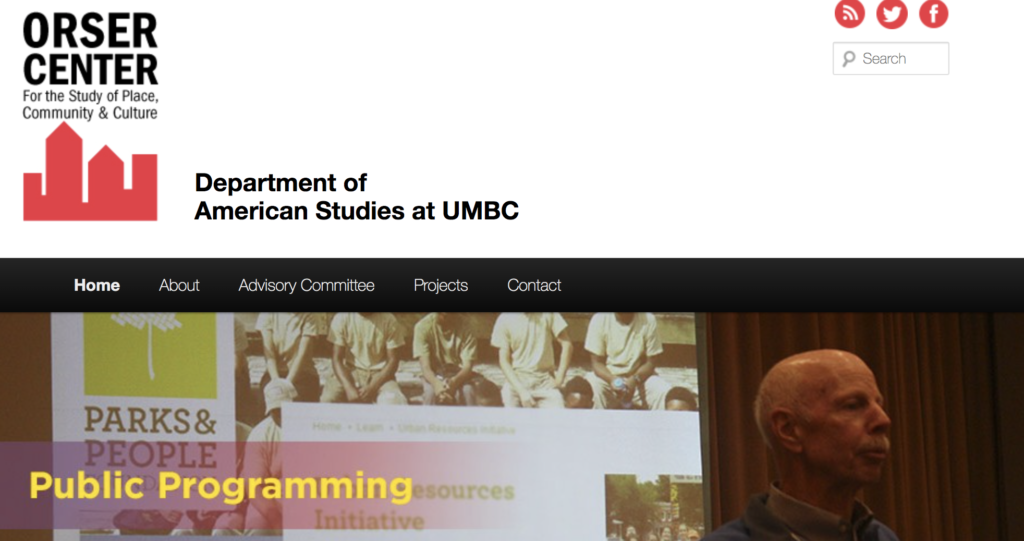
Ed and his wife Jo lived for many years in the Hunting Ridge neighborhood of Baltimore and he was known to bike to the UMBC campus. Ed and Jo recently moved to Charlestown Senior Living in Catonsville, where Ed continued to enjoy connecting with UMBC alumni and faculty.
Ed will be remembered for his contributions to how we understand cities, especially Baltimore, and issues of environmental justice. He influenced generations of students and mentored many faculty members. His kindness, humility, and generosity will be greatly missed in the Department of American Studies, the Orser Center, and across the UMBC campus.
We send our sincere condolences to Ed's beloved family and invite the UMBC community to attend a memorial service celebrating Ed's long and rich life at 11 a.m. on Saturday, January 20, at Salem Lutheran Church, 905 Frederick Road in Catonsville. All who knew and loved him are invited to attend. In lieu of flowers, the family requests contributions be made to Salem Lutheran Church (www.Salem-Catonsville.org/) or the Charlestown Scholars' Fund (www.ccicharlestown.org/giving/scholars-fund).
In honor of Ed's long contributions to the fields of urban and American studies, the Department of American Studies and the Orser Center are co-sponsoring a Humanities Forum lecture by noted urban historian Davarian Baldwin on May 1, 2024. American Studies & the Orser Center will continue to find ways to recognize the work of Ed Orser and his engagement with the study of place and community in the Baltimore region. A donation can be made to support that work in Ed's name on the Department's Giving Page.
You can read Ed's obituary here.
Posted: January 12, 2024, 9:36 AM
